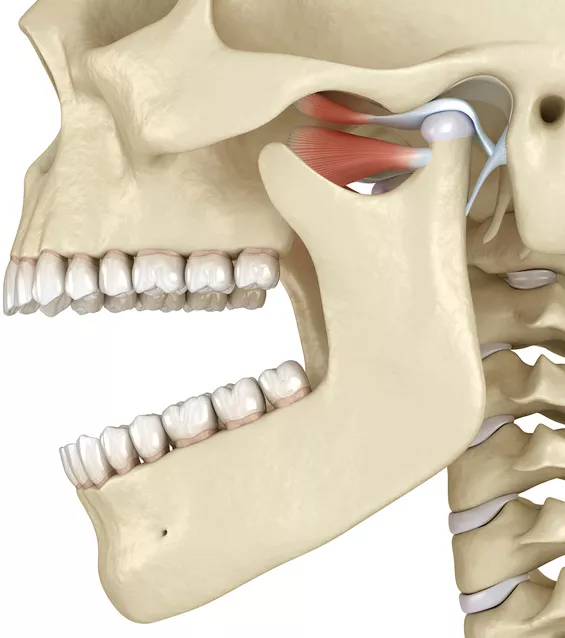Get Relief from Chronic Jaw Pain
TMJ disorder can cause chronic headaches and jaw pain, as well as difficulty chewing and swallowing. We offer diagnosis and treatment to help you find relief.

What Is TMJ Disorder?
TMJ Disorder is the name for a group of disorders that cause pain in the temporomandibular joint between your lower jaw and your skull. The cause can be difficult to determine – causes can include arthritis, genetics, stress, or injury. TMD symptoms can include chronic facial and jaw pain, headaches, difficulty opening your mouth and swallowing, and a clicking or popping sound when you chew.
Book NowDiagnosis & Treatment
Diagnosis of TMD focuses on discovering the root cause of the pain. We’ll examine your overall health and stress level, your teeth and jaw structure, and whether you suffer from nighttime grinding or malocclusion.
Once we determine the cause, there are a variety of treatments we can use to provide relief. We may recommend or prescribe anti-inflammatory medication, physiotherapy, massage or stretches, orthodontic treatment, or stress reduction techniques. Once the inflammation has been treated, the TMD symptoms should subside.

Frequently Asked Questions
What are the risk factors for TMJ disorder?
Your risk of developing TMJ can be increased if you have arthritis or a jaw injury, if you chronically clench or grind your teeth, or if you suffer from connective tissue disease that affects the temporomandibular joint. You can also develop TMJ symptoms if your jaw is injured.
Is there anything I can do at home to manage symptoms?
You may find relief from placing a warm or cold compress on your jaw or gently massaging your jaw muscles. Other things that can help are to eat a softer diet and avoid chewy, sticky, or hard foods. You can also relax your jaw muscles. When your jaws are relaxed, your teeth will be slightly apart and your tongue should be resting on the floor of your mouth.

